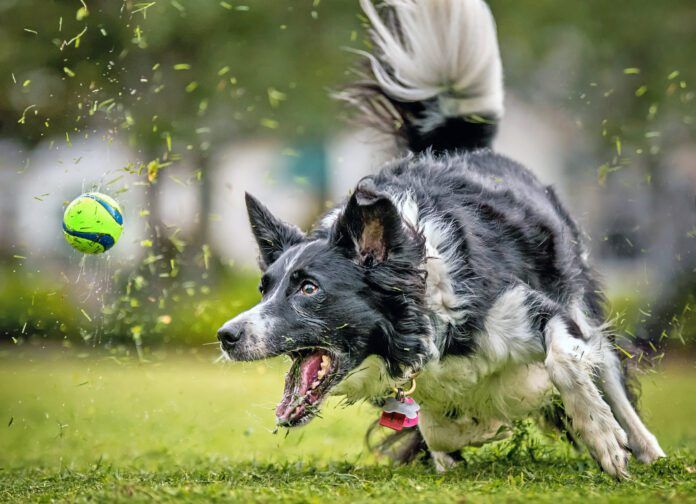If your dog is too thin, adding calories is the obvious solution. But whether you have a working dog, canine athlete, perpetually active family companion, or senior dog, there are some things to consider when selecting the best high-calorie dog food for weight gain. Both wet foods and dry foods for weight gain can work.
Think Dog
Factors such as breed, age, size, environment, and overall health all impact a dog’s energy requirements. Dogs are known for their seemingly endless energy and enthusiasm, but sometimes that energy expenditure makes keeping weight on our companions difficult.
Working dogs and canine athletes often have higher demands than an average pet and many require high calorie dog food to maintain a healthy body weight and condition. If your dog started to lose weight without increased energy needs, however, a veterinary visit is in order.
Before changing from a food you like, consider adding a meal to put weight on your dog. If your dog usually eats twice a day, up that to three times a day, gradually increasing the amount of food, but keeping meals evenly spaced out.
Always monitor your dog’s weight and adjust their portions accordingly. Slowly transition when changing diets and be sure to consult with your veterinarian to tailor their diet to their specific needs.
Meeting Calorie Needs
High-energy diets should be calorie-dense to meet the increased energy demands of active dogs, those in stages of growth and reproduction, or to help seniors gain weight. Calories can come from a multitude of different ingredients, but their sources can be broken down into three main categories: proteins, fats, and carbohydrates.
Protein is especially crucial for dogs with high energy needs. Whether your dog is young and active, or a senior who struggles to maintain weight, high-quality, highly-digestible proteins are essential for helping to maintain lean body mass, or muscle mass. High quality, digestible proteins support muscle and cellular development, repair, and supports energy levels. Animal-based protein, such as eggs and muscle meat, provide an excellent source of highly-digestible protein for dogs.
Fat is the most concentrated source of dietary calories and is vital for boosting the energy density of your dog’s food. Look for diets with moderate to high levels of healthy fats, including omega-3 (commonly found in fish oils) and omega-6 (commonly found in plant oils) fatty acids. These fats not only provide an excellent source of energy, but can also support skin and coat health, cognitive function, and joint health.
While fats are an excellent source of energy, excessive amounts can increase the likelihood of pancreatitis in dogs. Because of this, the National Research Council (NRC) lists a maximum fat requirement of 82.5g/1,000 kcal, meaning that no more than approximately 74% of a dog’s calories should come from fat. While this is a guideline to follow, every dog is an individual, so be sure to adjust the diet as needed and always consult your veterinarian about any concerns.
Carbohydrates serve as a source of readily available energy. Including carbohydrates from grains, fruits, and vegetables can help provide energy and nutrients, such as vitamins, antioxidants, and minerals. Carbohydrate sources can also provide an excellent source of fiber, which can help with stool quality and can support a healthy gut microbiome.






